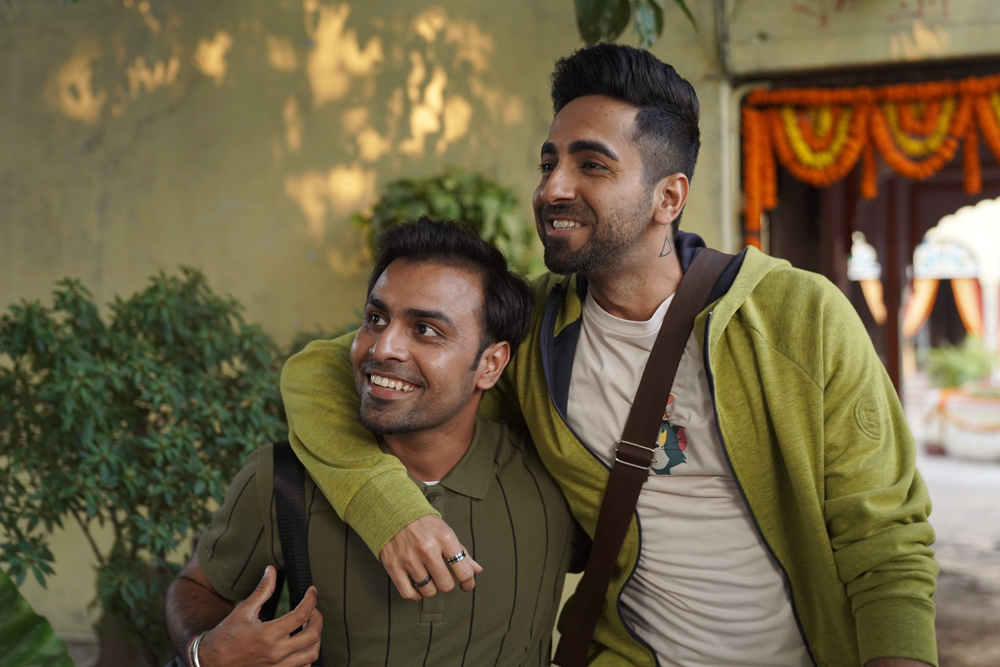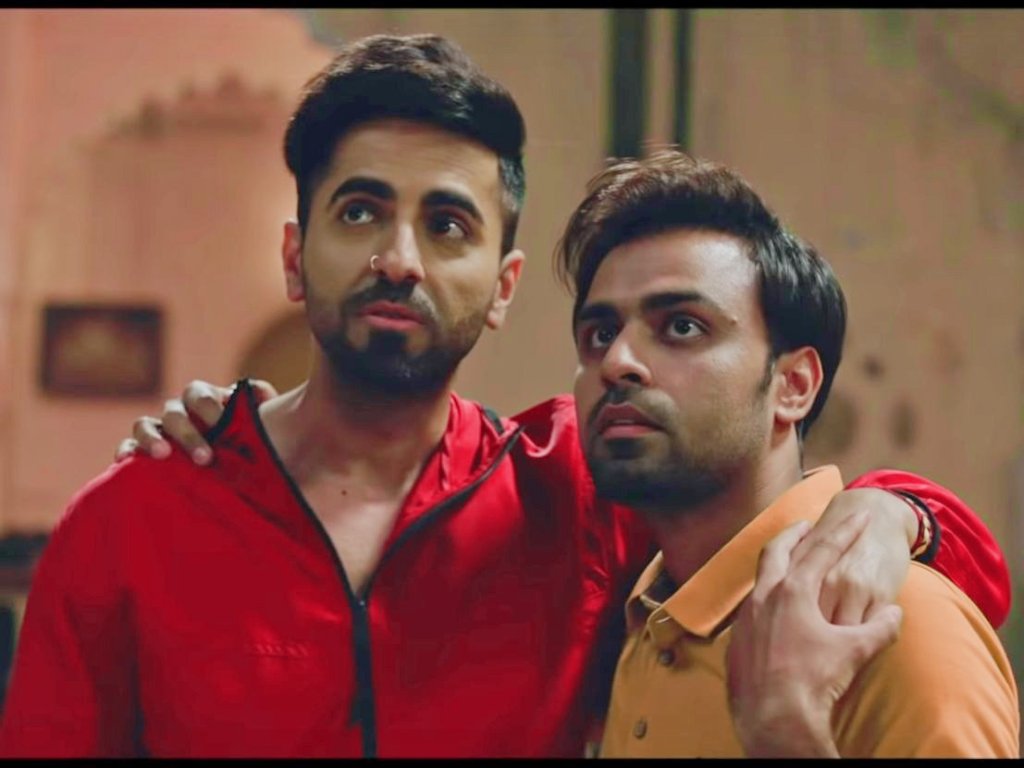It isn’t every day that Bollywood (at least the mainstream) chooses to celebrate and embrace same-sex romances onscreen. Once in a blue moon, films make brave attempts to break the stigma of homosexuality in India. Films such as Onir’s “My Brother… Nikhil,” Deepa Mehta’s lesbian romance “Fire” and this, “Shubh Mangal Zyada Saavdhan” come along and break barriers. These do so refreshingly through a wholesome and even beautiful portrayal of homosexuality.
Kartik and Aman are deeply in love. Sadly, they have to hide their love from a conservative family, especially as they face opposition from Aman’s homophobic father. An agricultural scientist, who despite his background, can’t accept the fact that his son is homosexual. He continues to shun him for it (even going to the extent of trying to ‘cleanse’ him and forcefully marry him off). When a stringent law further threatens to suppress their relationship, the two have to take a stand for their right to love; this could lead to shunning by most of the elders in the family.
The humour in this comedy-drama is often sharply satirical; I love the subtle jabs at patriarchal practices in Indian society, and the various toxic gender norms. I especially loved including characters like Goggle, one of the few who are understanding of Kartik and Aman’s relationship. At the same time, she is constantly challenging norms by choosing to ‘ride the mare’ to her own marriage rituals (usually the groom assumes this job).
The demure Kusum comes off as the ‘third wheel’ love interest. When you look closer, she acts as a perfect parody to the stereotypical sanskaari (Hindi for ‘traditional’) girl. Finding it hard to break free from tradition, they are bound by societal norms. They must behave as the ‘typical daughters in law’ and housewives. They are brainwashed into thinking that their only goals are to marry and have children. The movie also has many tongue-in-cheek references to how angry, young masculinity depicted in ’90s Bollywood action movies has shaped the mindsets of many youth growing up during that era until now.

Another plus for me was Kartik and Aman’s subversion and faithful reenactment of iconic ‘heteronormative’ cinematic moments. These include the ‘climactic train scene’ from the movie “Dilwale Dulhania Le Jayenge” and the ‘making out under a coat’ scene from “Aashiqui.” These are a treat to watch, while at the same time very thought-provoking. The ‘chemically improved black cauliflower’ plot point in particular is also cleverly included by the writers as an analogy; any attempts to hinder or alter what is natural, normal, and beautiful can often backfire.
The whole cast, from seasoned veterans such as Neena Gupta and Gajraj Rao, to up and coming actors like Ayushmann Khurrana, Jitendra Kumar (of “Panchayat” fame), Maanvi Gagroo and Pankhuri Awasty are a talented bunch. Khurrana and Kumar, in particular, knock it out of the park as Kartik and Aman respectively. They share great chemistry as a couple deeply in love, who fight against society to gain acceptance.
The cameo from actress Bhumi Pednekar felt a tad forced. This was probably only a bid by producers to tie the movie in with “Shubh Mangal Saavdhan,” this film’s predecessor. The film’s makers could easily remove this, adding instead a more hard-hitting sequence of events related to Kartik and Aman’s struggle for acceptance.
“Shubh Mangal Zyada Saavdhan” is a brave step in the right direction. Hopefully, this isn’t the last mainstream movie to address ‘taboo’ topics in India. Here’s to many more in the Indian film fraternity stepping forth to embrace and create mature, boundary shattering content.
*”Shubh Mangal Zyada Saavdhan” is currently available to watch on Amazon Prime Video.


